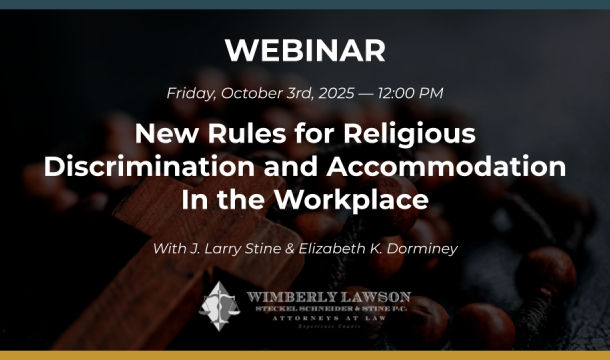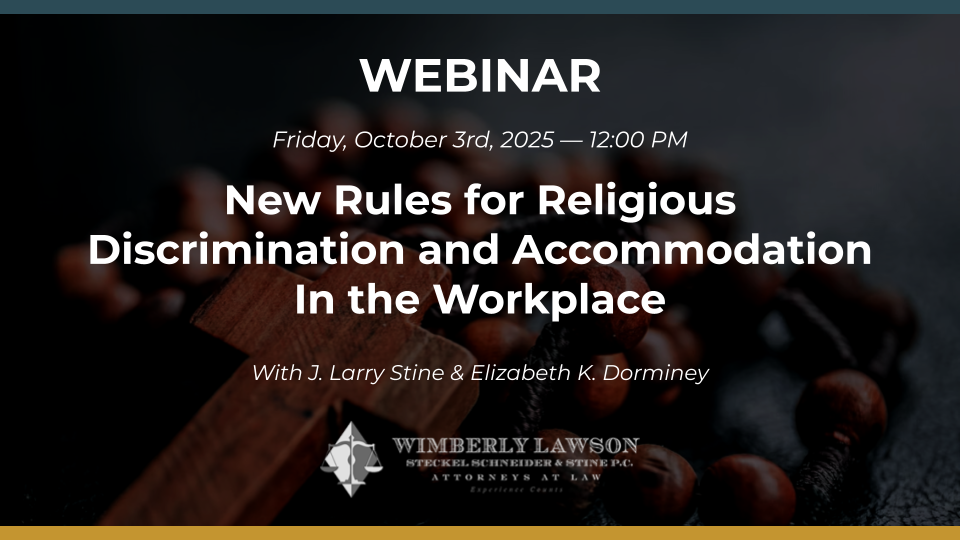EEOC Issues Final Rules on Employer Wellness Programs
Many employers offer workplace wellness programs intended to encourage healthier lifestyles or prevent disease. These programs sometimes use medical questionnaires or health risk assessments and biometric screenings to determine an employee's health risk factors, such as body weight and cholesterol, blood glucose, and blood pressure levels. Some of these programs offer financial and other incentives for employees to participate or to achieve certain health outcomes.
The U.S. Equal Employment Opportunity Commission (EEOC) issued final rules this week that describe how Title I of the Americans with Disabilities Act (ADA) and Title II of the Genetic Information Nondiscrimination Act (GINA) apply to wellness programs offered by employers that request health information from employees and their spouses. The two rules provide guidance to both employers and employees about how workplace wellness programs can comply with the ADA and GINA consistent with provisions governing wellness programs in the Health Insurance Portability and Accountability Act, as amended by the Affordable Care Act (Affordable Care Act).
The ADA and GINA generally prohibit employers from obtaining and using information about employees' own health conditions or about the health conditions of their family members, including spouses. Both laws, however, allow employers to ask health-related questions and conduct medical examinations, such as biometric screenings to determine risk factors, if the employer is providing health or genetic services as part of a voluntary wellness program. The final ADA rule provides that wellness programs that are part of a group health plan and that ask questions about employees' health or include medical examinations may offer incentives of up to 30 percent of the total cost of self-only coverage. The final GINA rule provides that the value of the maximum incentive attributable to a spouse's participation may not exceed 30 percent of the total cost of self-only coverage, the same incentive allowed for the employee. No incentives are allowed in exchange for the current or past health status information of employees' children or in exchange for specified genetic information (such as family medical history or the results of genetic tests) of an employee, an employee's spouse, and an employee's children.
The final rules, which will go into effect in 2017, apply to all workplace wellness programs, including those in which employees or their family members may participate without also enrolling in a particular health plan.
The rules are available in the Federal Register at https://www.federalregister.gov/articles/2016/05/17/2016-11558/regulations-under-the-americans-with-disabilities-act and https://www.federalregister.gov/articles/2016/05/17/2016-11557/genetic-information-nondiscrimination-act.

Kathleen J. Jennings is a former principal in the Atlanta office of Wimberly, Lawson, Steckel, Schneider, & Stine, P.C. She defends employers in employment matters, such as sexual harassment, discrimination, Wage and Hour, OSHA, restrictive covenants, and other employment litigation and provides training and counseling to employers in employment matters.
Related Content
Get Email Updates
Recent Content

Trump Nominates Appointments to NLRB and EEOC but Policy Changes Likely to Be Delayed

DOL Launches Self-Audit Programs Designed to Help Employers Improve Compliance

DOL Must Release EEO-1 Reports to the Public under Open Records Laws

Current Advice on Active-Shooter Situations

New Policy for Federal Workers and Religious Expressions

